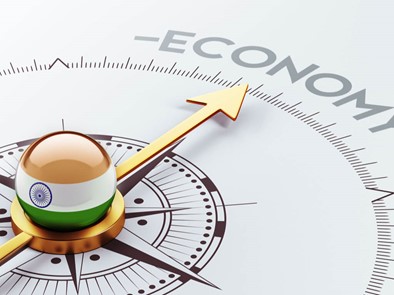
On the back of high public spending and
much-improved manufacturing performance, the government pegged economic growth
at 7.3 per cent for Fiscal Year 2023–24 on Friday5 Jan. At this rate, India remains the fastest-growing economy in the world.
The economy grew by 7.2 per cent in
Fiscal Year 2022–23.
“These are early projections for 2023–24. Improved
data coverage, actual tax collections, expenditures incurred on subsidies, data
revisions made by source agencies, etc. would have a bearing on subsequent
revisions of these estimates,†the National Statistical Office (NSO) said while
releasing the First Advance Estimate (FAE), which will be revised five times in
the next two years.
Manufacturing, which accounts for about
17 per cent of the GDP, is estimated to expand 6.5 per cent y-o-y in 2023/24,
compared with 1.3 per cent a year ago, while construction output was seen
growing by 10.7 per cent, up from 10 per cent in the previous year, data
showed. However, growth in farm output, contributing about 15 per cent to GDP,
was seen slowing down to 1.8 per cent in the current fiscal year from 4 per
cent in the previous year.
Commenting on the number, Aditi Nayar, Chief
Economist with ICRA, said that implicitly, the NSO expects GDP growth to
moderate to 7.0 per cent in H2 FY24 from 7.7 per cent in H1 FY2024.
“Surprisingly, the estimated GVA growth of 6.9 per cent for FY24 implies that
growth in this metric has been assumed at 6.2 per cent in H2, significantly
lower than the imputed GDP number for this period,†she said. She termed the
second half number as quite high, given the tepid outlook for agriculture
amidst the weak kharif output and ongoing lag in rabisowing, as well as the
feared temporary slowdown in capex ahead of the general elections.
In a note, Sunil Kumar Sinha (Principal Economist)
and Paras Jasrai (Senior Analyst) of India Ratings & Research said that
despite global headwinds, the growth momentum witnessed in FY24 is indicative
of the Indian economy’s resilience. However,
the road ahead is not going to be easy so long as private final consumption
expenditure does not fully recover and becomes broad-based. Here, the key
would be to watch the wage growth, especially of households belonging to the
lower income bracket, because that is what is critical for broadening the
consumption demand.
“The data shows that the real wage growth of
households belonging to the lower income bracket was marginally negative in
2QFY24. Ind-Ra’s calculation shows that a 1 per cent increase in real wages
could lead to a 1.12 per cent increase in the real PFCE, and the multiplier
effect of this could result in a 64-bp increase in GDP growth,†the note said.